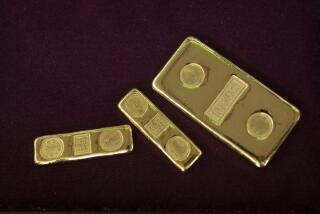Yeltsin Orders Economic Action Against Latvia
- Share via
MOSCOW — Russian President Boris N. Yeltsin diverted attention Wednesday from his country’s government crisis and a nationwide protest that discontented workers plan for today by ordering an economic onslaught against neighboring Latvia.
He asserted that Latvia, the former Soviet republic with a population of 2.5 million, deserved punishment for discriminating against its significant minority of Soviet-era ethnic Russian immigrants. Yeltsin called for “targeted economic measures” that he denied were sanctions, including boycotting the Latvian port of Ventspils as a transit point for Russian oil.
“Given the ongoing discrimination against . . . ethnic Russians living in Latvia, the Russian president asked the Russian government to pay the most serious attention to the possibility of diversifying the routes of Russian oil exports,” said Sergei V. Yastrzhembsky, Yeltsin’s spokesman.
Latvia, ruled from Moscow for half a century after being annexed in 1940, has been slow in the post-Soviet era to integrate the ethnic Russians who make up about 34% of its population. This rankles Russia, and relations between the two have worsened with two recent bombings in Riga, the Latvian capital, at the Russian Embassy and a synagogue. Latvia’s treatment of its Russians has received top billing in the Russian media in the last month.
Trumpeting the idea of protecting beleaguered Russians suffering at foreign hands is a sure-fire way of arousing nationalist sympathies in Moscow. And Yeltsin needs public support now, as he struggles to impose his shock choice of a new prime minister on a reluctant parliament after sacking the entire Cabinet last month.
Embarrassing demonstrations by workers fed up because the Russian government has not paid their wages for months are expected throughout Russia today.
Taking his cue from Yeltsin, Sergei V. Kiriyenko, his nominee for prime minister, announced that a long list of economic sanctions against Latvia was ready, opening the way for other Russian politicians to issue what amount to open threats against their Baltic neighbor. “The Latvian economy is fairly heavily dependent on providing services to Russian companies, including transit services,” Kiriyenko said.
Boris Y. Nemtsov, Russia’s acting first deputy prime minister, said Moscow had already limited oil deliveries to Latvia.
Russian lawmaker Alexander N. Shokhin said Latvia could lose a quarter of its national income if Moscow stopped using it as an oil transit route. “I have the impression that the Latvian authorities will soon realize into what impasse their anti-Russian campaign and their demonstration of revulsion for the entire past connected with Russia and the Soviet Union are driving them,” Shokhin told reporters.
He also said he plans to air Russia’s grievances against Latvia at the next assembly of the Council of Europe, a human rights watchdog. He said Russia should use measures that would “harm Latvia as a state,” by affecting its international image and economy.
In Riga, Foreign Minister Valdis Birkavs said Latvia had sought talks with Russia via the Council of Europe but that its proposal had been rejected. He said Latvia should shift its economic focus away from Russia and to other foreign markets.
Russia’s moves sparked a sharp reaction in Latvia, where five of 18 Cabinet ministers resigned Wednesday, protesting that Prime Minister Guntars Krasts was being insufficiently conciliatory toward Moscow, the regional power. Krasts said he would not back down.
Whether it will be possible for Russia to quickly stop its oil from going through Latvia remains unclear. Raitis Bullitis, president of the Latvian Trade Center company, was quoted by Interfax news agency and Latvian radio as saying that he did not believe that Russia could stop the flow through Latvian facilities within the next six months. But he said that could change after a new oil terminal is built in Lithuania and new Russian ports appear in the Baltic region.
More to Read
Sign up for Essential California
The most important California stories and recommendations in your inbox every morning.
You may occasionally receive promotional content from the Los Angeles Times.













